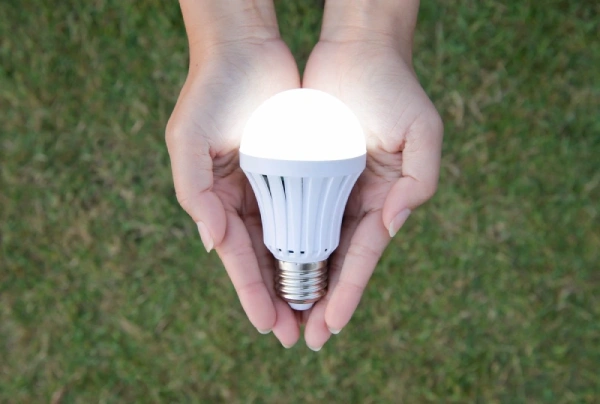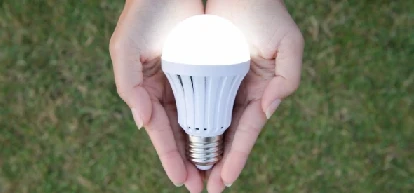
Are you stuck dealing with high energy bills every month? If so, you need a way to help cut down on your electricity consumption without sacrificing your comfort. Thankfully, Neighborly is here to help!
Discover the ultimate home energy efficiency solutions for savings. By implementing our tips, you can reduce your energy costs, have a positive impact on the environment, and extend the lifespan of your appliances. Learn how to create an energy efficient home below. :
How to Create an Energy Efficient Home
Creating an energy efficient home isn’t as difficult as you might think. Most of the work you need to do as a homeowner involves identifying the ways your home isn’t using energy well. Once you’ve done that, you’ll have a clearer perspective on the home energy efficient solutions you need to seek out.
Here are a few of the key ways you can improve energy use in your home:
Do a Home Energy Audit
Conducting an energy audit is the first step toward understanding your home’s energy consumption patterns and identifying areas for improvement. You can either do this on your own by reviewing your energy bill, or you can hire a professional to conduct an energy audit.
Proper Home Insulation
Most of the time, the energy waste in your home is the result of poor insulation. If your insulation is subpar, it can make your air conditioning and heater work harder to maintain a comfortable temperature. The same issue can also happen if you have drafty windows or ill-fitting doors. Installing new doors and windows or upgrading your insulation can help you save money each month.
Lighting Improvements
Switching to energy efficient lighting can have a significant impact on home energy consumption. LED and CFL bulbs are energy efficient alternatives to traditional incandescent bulbs. They also last longer and give off more light than incandescent bulbs.
HVAC System Upgrades
A functional HVAC system is essential for cutting down your energy bill. Heating and cooling make up a major portion of most homeowners' monthly electric bills, so an inefficient system can cost you a lot in the long run. Regular HVAC system maintenance and upgrades can reduce how much energy your system uses, helping you save money.
If you’re looking for a way to save even more money, consider alternative heating and cooling options like high-efficiency furnaces, ceiling fans, and heat pumps. These can keep your home comfortable while using less energy than an HVAC system.
Greater Air Circulation
A standard ceiling fan uses far less energy than a central heating or air conditioning unit. When the weather permits, opening your windows and turning on a fan to circulate cool air can cut down on energy costs.
Energy Efficient Home FAQs
How can I cut down on energy consumption without spending money?
Making upgrades to your home is a great way to save money on your electric bill, but if you’re not ready for an investment just yet, you still have options. Here are a few ways to reduce your home energy consumption without spending money:
- Set your thermostat lower (or higher): Your HVAC system is the biggest energy hog in your home. Adjusting your thermostat to be just a little cooler in the winter and a little warmer in the summer can make a noticeable difference in your monthly bill.
- Wash clothes in cool water: Warming up water takes energy, and in a home or apartment, you have to pay for that energy. Washing your clothes in cool water is a little more energy efficient than using hot water.
- Adjust fridge and freezer temperatures: Your fridge and freezer might be colder than necessary. Adjusting the temperature to the middle setting or lower will usually meet all of your food storage needs and save you a few dollars each month.
- Use your ceiling fan more often: If you have a ceiling fan that you don’t use during the summer, your AC is eating up your money. When the weather is right, open the windows and run the fan to keep your home cool for a fraction of the cost.
What uses the most energy in the average home?
The first question most homeowners ask when they get an expensive energy bill is, “What caused this?” Usually, the answer to that question is the HVAC system.
According to the U.S. Energy Information Administration (EIA), heating and air conditioning make up 51% of all energy use in the average home. The next biggest energy user is water heating, which typically makes up around 12% of your energy use.
Anything that you can do to improve the efficiency of your HVAC system, or reduce your use of it, will have a positive impact on your energy bill. Finding alternative heating and cooling methods is often the best way to reduce your energy consumption.
Build a More Energy Efficient Home with Help from Neighborly’s Family of Brands
By implementing home energy efficient solutions, homeowners can enjoy reduced electrical bills without sacrificing their comfort. Take control of your energy consumption, reduce costs, and contribute to a sustainable future. Click the button below to find a home service professional who can help you optimize your energy usage.



 Back
Back
 1 (855) 217-8437
1 (855) 217-8437



